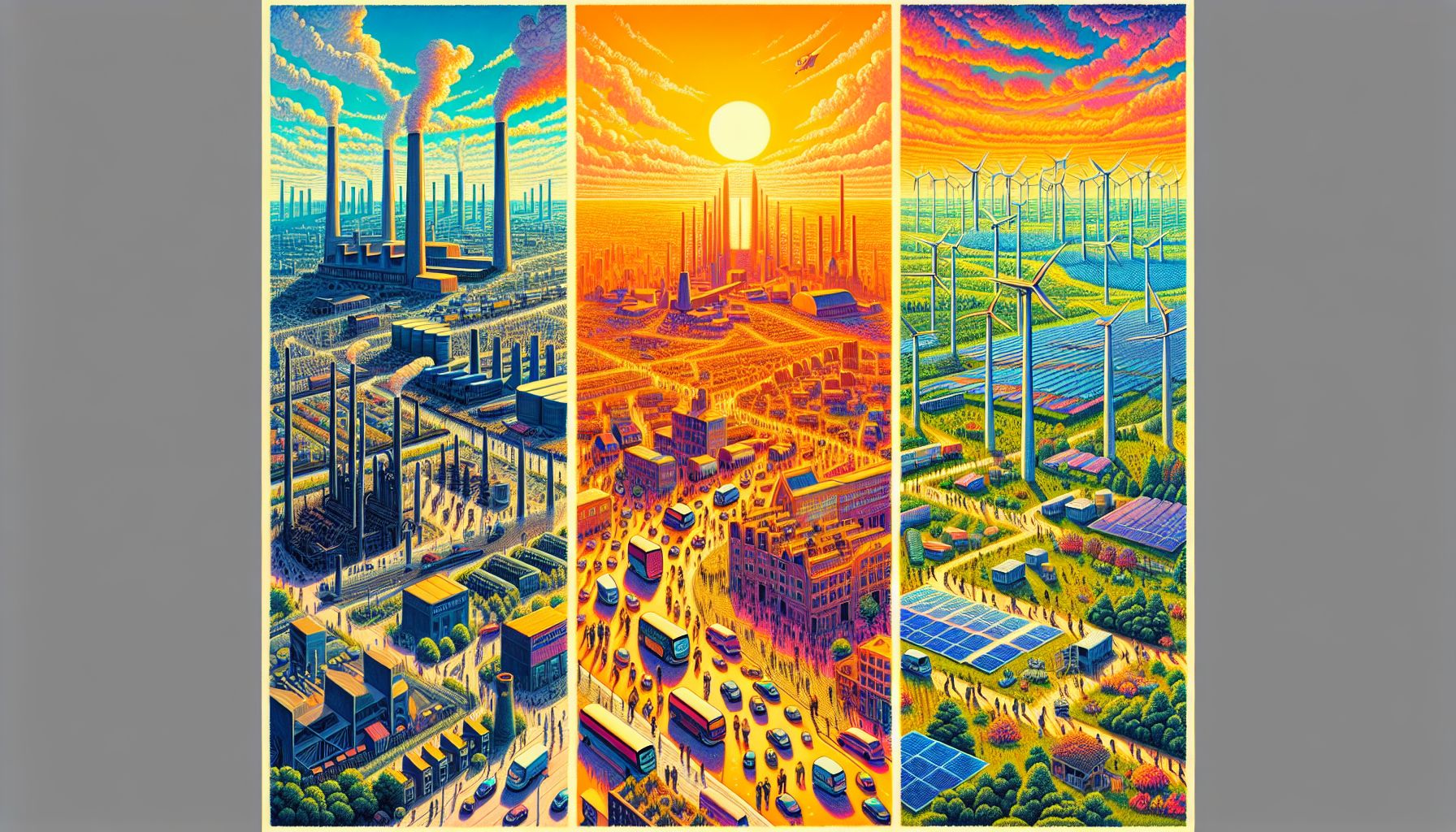TNO Unveils Three Scenarios for Climate-Neutral Energy in the Netherlands

Netherlands, Friday, 19 July 2024.
TNO presented three scenarios for achieving a climate-neutral energy system in the Netherlands by 2050. The study explores different pathways, including conserving industrial structure, behavior change, and renewable energy sources, highlighting the complex challenges in transitioning to a sustainable energy future.
The Three Scenarios
TNO’s study outlines three distinct scenarios: ADAPT, TRANSFORM, and Operamodel. The ADAPT scenario focuses on conserving the existing industrial structure, ensuring that the energy-intensive industries and fuel production for international transport continue to thrive. The TRANSFORM scenario, on the other hand, emphasizes behavior change, aiming to reduce energy demand significantly through changes in consumption patterns. Lastly, the Operamodel scenario strives to meet national and European climate goals by prioritizing renewable energy sources, including the integration of small modular reactors for nuclear power.
Electrification and Green Hydrogen
A common thread across all scenarios is the increased demand for electricity driven by electrification and the adoption of green hydrogen. According to Martin Scheepers, Senior Consultant for Energy Transition at TNO, ‘The size of the energy-intensive industry and the production of fuels for international transport determine the energy demand.’ The study anticipates that the shift towards electrification and green hydrogen will lead to a substantial rise in electricity consumption, necessitating robust infrastructure and smart grid solutions.
Challenges and Policy Implications
The transition to a climate-neutral energy system is fraught with challenges, including practical implementation and labor shortages. Kim Solberg from the Ministry of Climate and Green Growth noted, ‘Now, with labor shortages, maintaining the energy-intensive industry is costly.’ TNO’s scenarios highlight the need for a mix of technologies and policy interventions to overcome these hurdles. Martijn Broekhof from VNCI stressed the importance of a policy that balances energy and industrial sector needs, expressing concerns regarding investments in the chemical industry without ensuring competitiveness.
Battery Storage and Smart Charging
Battery storage and smart charging are pivotal components of the envisioned energy system. These technologies are crucial for managing the intermittent nature of renewable energy sources and ensuring grid stability. The Operamodel scenario, in particular, places significant emphasis on these innovations to achieve a seamless integration of renewables into the energy mix. As noted by TNO, the successful deployment of these technologies is essential for meeting the climate goals by 2050.
International Collaboration and CO2 Storage
The study underscores the importance of international collaboration and CO2 storage in maintaining industrial infrastructure and achieving climate neutrality. Kim Solberg highlighted the necessity for international interaction and CO2 storage solutions to address the challenges posed by preserving the industry’s viability. This aspect is critical in the TRANSFORM scenario, where behavior change is expected to reduce energy demand, making international cooperation even more vital.
Conclusion
TNO’s presentation of these scenarios provides a comprehensive roadmap for policymakers and industry stakeholders in the Netherlands. The mix of conserving industrial structure, promoting behavior change, and harnessing renewable energy sources offers a balanced approach to navigating the complex energy transition landscape. As the Netherlands aims for a climate-neutral energy system by 2050, the insights from TNO’s study will be instrumental in shaping future energy policies and technological investments.
Bronnen
- www.pompnl.nl
- automotive.messefrankfurt.com
- link.springer.com
- www.nature.com
- www2.deloitte.com
- en.wikipedia.org

